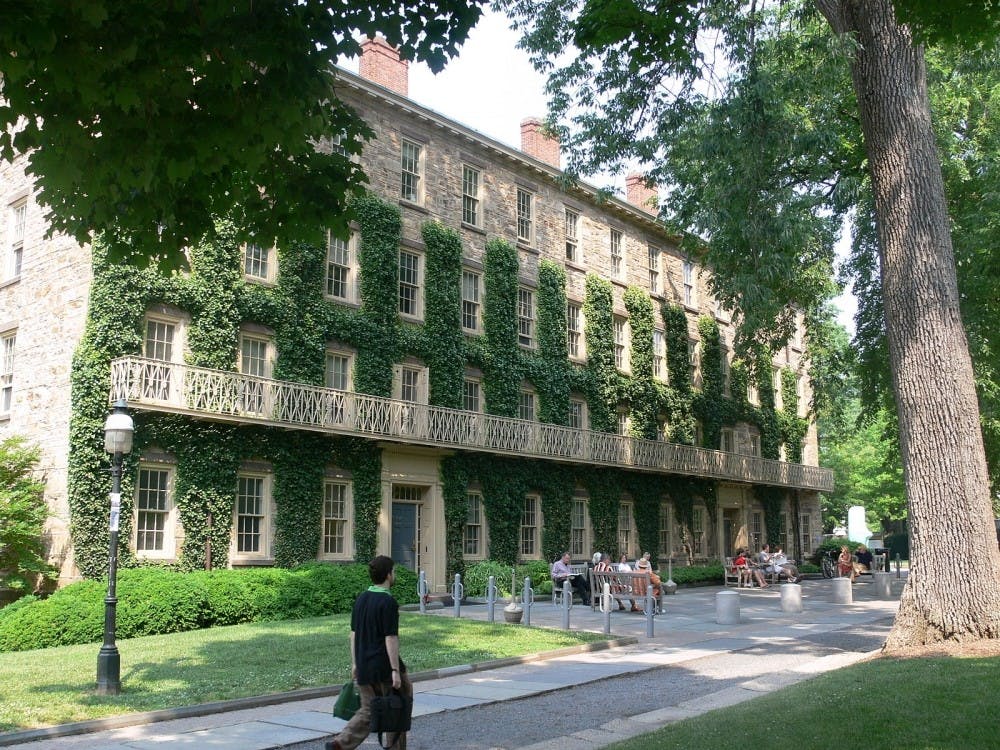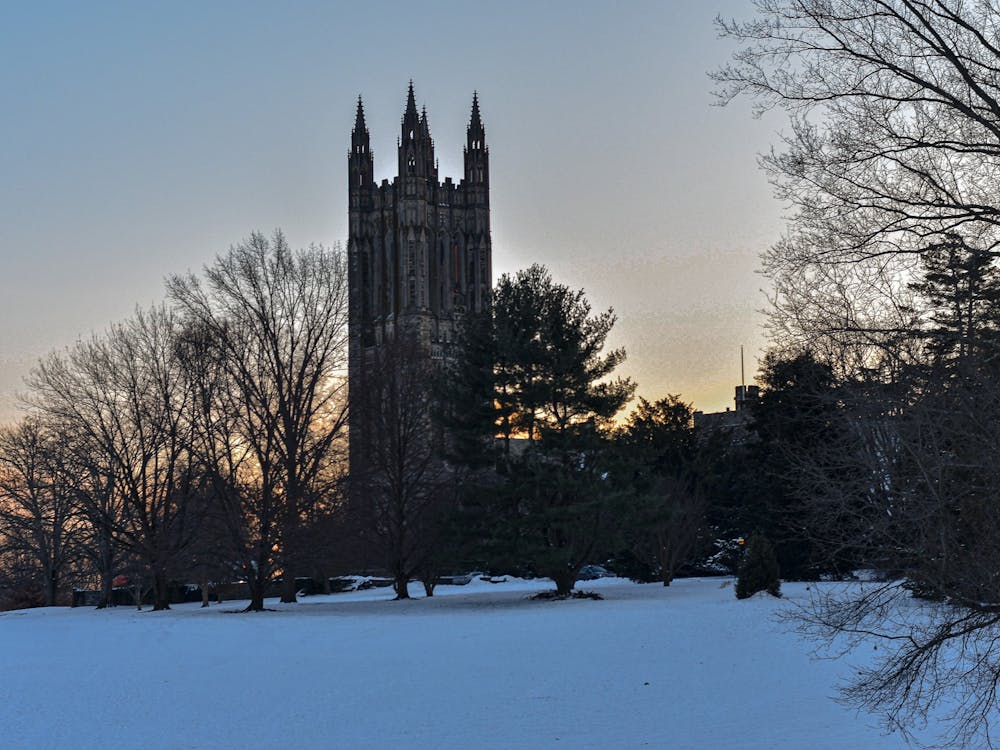When Nasir Ismael ’21 found out that he had been accepted to the University, he was as ecstatic as any other student. With the help of the financial aid office, he was able to assure his ability to matriculate this fall.
But for Ismael, a native of East London whose parents emigrated from Bangladesh to the United Kingdom, there was still a snag: the $1,800 fee for the Student Health Plan. Undergraduate students are required to enroll in the SHP or opt out by providing private insurance information by June 30 each year. In other words, Ismael must have health insurance in order to matriculate.
The University claims to meet all students’ financial needs, including those of international students, but some aid may still be uncertain even after the student has committed to attend. This includes helping to pay for the SHP if a student certifies that they cannot waive out of the SHP because they are not insured under their family’s health policy or that the family’s health plan “does not meet the comparable coverage requirement.”
Although Ismael has applied for coverage of the SHP as part of his financial aid package, he has not heard from the University yet. His high school counselor started to worry that if he didn’t get financial aid, the deadline would arrive too soon for Ismael be able to raise the funds to pay the fee himself — and so his counselor advised Ismael to start fundraising.
Ismael created a JustGiving fundraiser online to raise the $1,800 cost for his health plan, and one of his former classmates helped promote the crowd-sourced fundraiser through Twitter and other social media. The fundraiser, hosted by Ismael, states simply “We’re raising $1,800 to help me pay for my health insurance.”
At the time of publication, the fundraiser had raised $298 from 14 donations.
In the U.K., the National Health Service is free for all residents. Someone like Ismael wouldn’t have his own insurance, and upon arriving in the United States would most likely be covered under the University’s plan. Although health insurance coverage increased recently under the Affordable Care Act, not every U.S. citizen is insured, and even this expansion of coverage may be reversed as a new health care overhaul makes its way through Congress.
Director of Undergraduate Financial Aid Robin Moscato said that term bills for the next academic year have not yet been sent out, as per normal policy. Families won’t receive them until early August.
“All of this is perfectly normal,” Moscato wrote in an email. She explained that students are notified of how to apply for financial aid for the SHP cost in several ways.
Deputy Director of Undergraduate Financial Aid Betty Ashwood explained that returning students receive information regarding their SHP coverage in May or June, but that new students receive the information later in their matriculation packet over the summer.
Ashwood wrote that this process will be finalized in the next seven to ten days and students will be notified via a confirmation email at the same time.
However, specifications for what amount of need qualifies a student for coverage of their SHP fee are not readily available. The aid available covers all or a portion of the SHP, depending on income. Ismael, not knowing if he would qualify, worried that he might wait too long and be unable to pay when the deadline for payment arrived. Furthermore, the process of applying for and receiving financial aid can be a complex process -- with or without guidance.

The SHP cost is not part of the initial financial aid package; students “must contact the Financial Aid Office to request additional aid and certify that [the student] ha[s] no other health insurance,” according to the “Terms of Your 2017–18 Financial Aid Award” brochure sent to accepted students receiving financial aid.
“Aid is not automatic since some students choose to enroll in the University plan but also have coverage elsewhere,” Ashwood wrote, adding that the University doesn’t offer aid to cover the SHP for students who already have insurance. The SHP Financial Aid Request and Certification form ensures that students don’t have other health insurance and therefore can’t waive out of the University SHP.
Then, the University offers aid based on income, subject to review of SHP enrollment throughout the academic year, Ashwood explained.
“It’s a fairly simple, straightforward process,” she wrote. “We include information to all aid student[s] with their financial aid awards, and McCosh includes a link to our form in their email correspondence.”
Nichola Vo, a classmate of Ismael’s, tweeted support for his fundraiser urging media coverage and soliciting donations. She explained that she was part of a group of friends Ismael told about the issue.
Vo tweeted, “So, one of my classmates, Nasir, got a full scholarship for his undergrad at @Princeton. However, he needs to pay for his health insurance....” She included the link to the JustGiving fundraiser in the thread of tweets explaining his situation, concluding that due to his coming “from East London to Princeton, as an ethnic minority, I am so proud to support him.”
Vo explained that supporting her efforts came naturally.
“When you come from backgrounds where there's been a lack of access to begin with, there's a strong sense of community,” she wrote in an email.
Moscato explained that the University has a policy to cover students like Ismael.
“Any aid student who does not qualify for a waiver based on family insurance (which would include most international students) can request an aid increase to cover the health plan,” she wrote in an email. She added this policy is also explained in the “Terms of Your Award” brochure, and that it “hasn’t changed in many years.”
Further, the SHP website and matriculation website “both direct students who need assistance with the health plan to the aid office” and the aid request form.
“So this international aid student clearly should be in touch with us rather than raising funds online,” Moscato wrote.
Ismael lives in the London Borough of Tower Hamlets in the East End. It’s part of East London which, he wrote, is and has historically been known for its poverty. He noted that Tower Hamlets also has a substantial immigrant population, and many residents speak English as a second language.
“To the best of my knowledge, no one from Tower Hamlets has ever gotten into Princeton,” he wrote.
In recent years, the University has dramatically increased the number of admitted students from low-income backgrounds, many of whom are also the first in their families to go to college. Often, these students haven’t necessarily been exposed to the same opportunities and common knowledge that other accepted students from more privileged backgrounds take for granted.
Notably, the University has tripled the percentage of Pell-eligible first-years to 21 percent from the class of 2008 to the class of 2020, making it “one of the highest percentages of Pell-eligible students among the nation’s most selective colleges and universities,” according to a press release. Pell Grants, a federal education subsidy, are given to students with particular financial need.
Ismael was part of the Sutton Trust U.S. Programme, which runs in conjunction with the U.S.-U.K. Fulbright Commission. The organization works to combat educational inequality and increase social mobility. Ismael was one of 62 British state school students “from low and moderate income backgrounds” who will matriculate at prestigious U.S. colleges and universities this fall.
The SHP is offered to University students and their eligible dependents. It is a self-insured plan administered and funded by the “University in cooperation with Aetna Student Health (ASH) for medical claims coordination and services, and Express Scripts (ES) for prescription plan claims coordination and services.”
For individuals, the “Policy Year Medical and Prescription Drug Deductibles must be met prior to benefits being payable.” The overall and prescription drug deductibles are $200 and $100 per policy year, respectively.
UHS and University spokesperson Michael Hotchkiss deferred comment to Moscato.
Ismael’s mother is a single parent of four children. She suffers from a long-term illness and raised Ismael and his siblings with the help of government benefits. With this background, he’s passionate about healthcare and the ongoing debate in the United States and the U.K. and believes in the importance of health care coverage.
The average financial aid award for the 2015–2016 school year was $50,240 and 60 percent of undergraduate students receive financial aid, according to the Office of Financial Aid.
This story is part of ongoing coverage.









